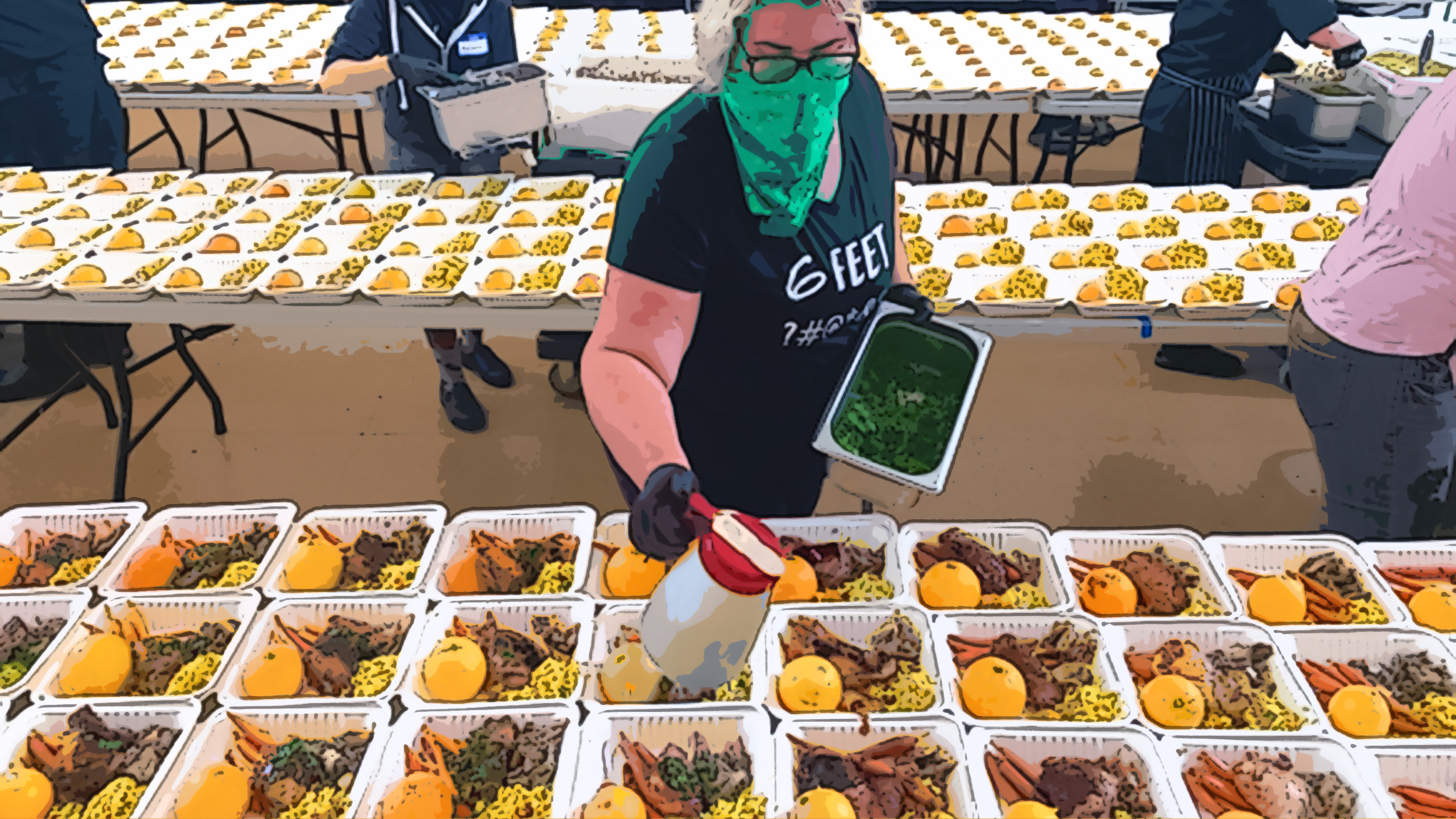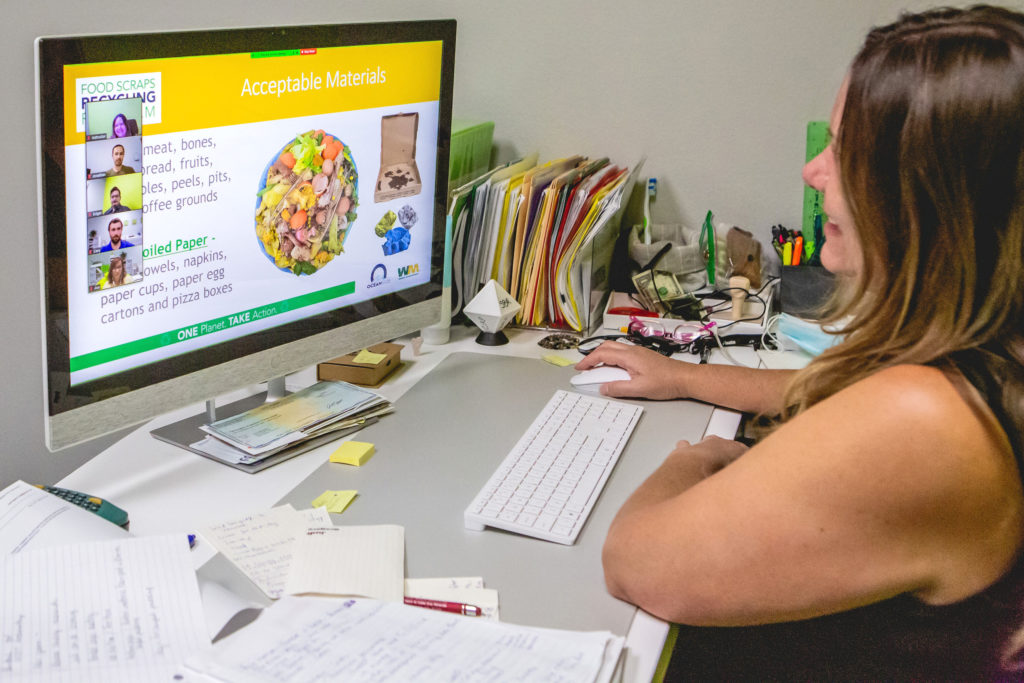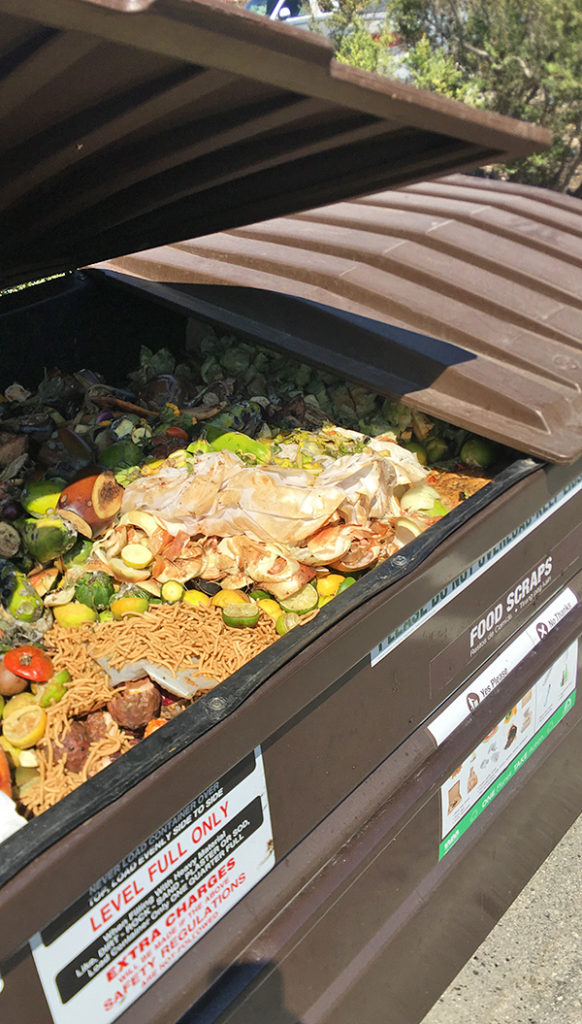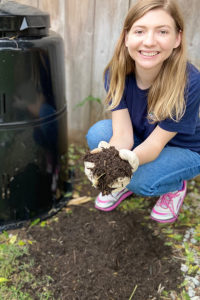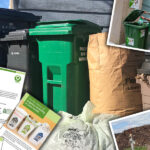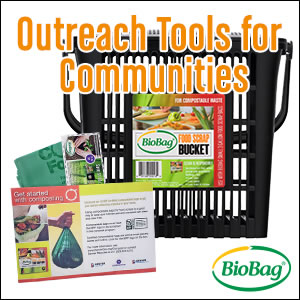Ana Carvalho
In California, the City of Oceanside’s Green Oceanside Kitchen (Kitchen), operated by O’Side Kitchen Collaborative (OKC), opened in June 2019. The Kitchen supports the City’s commitments to Zero Waste, responsible resourcing, and climate action management by diverting edible food from the landfill to aid in feeding the community. Its mission is to be a “state-of-the-art food recovery and preservation facility designed to foster a sustainable food system and offer culinary learning opportunities dedicated to wasting nothing and feeding our community that incorporates sustainability in every way the community enjoys food, from production to consumption and recycling.” The kitchen, funded with $1.7 million from the City of Oceanside, was developed using an existing vacant space within the City’s El Corazon Senior Center. It consists of an industrial kitchen, a demonstration kitchen, and a multipurpose room that occasionally serves as a banquet room with a large outdoor area to host events.
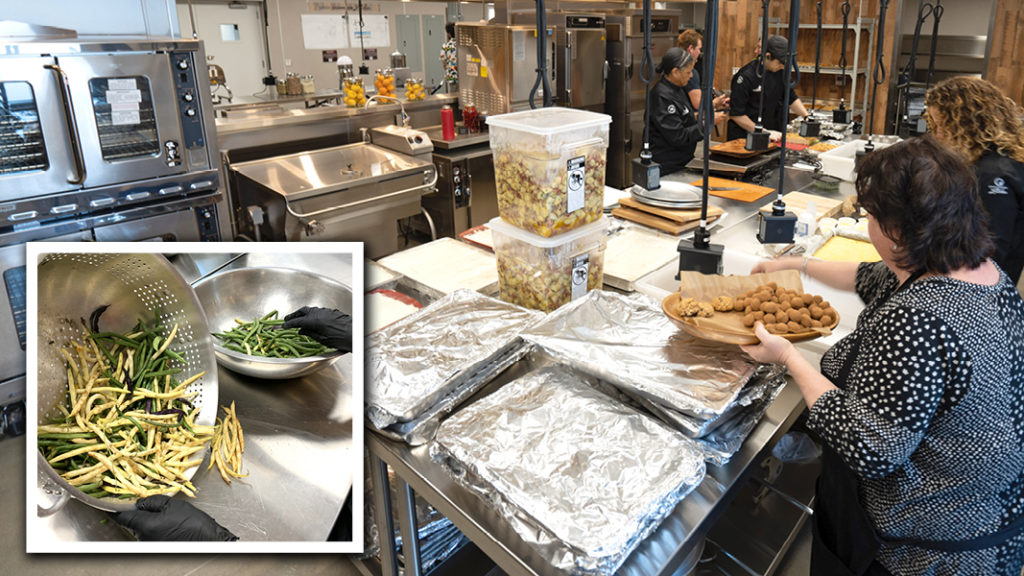
OKC staff and volunteers prepare food for Catering for a Cause event. Photos courtesy of City of Oceanside, CA
To operate the facility, the City formed a public-private partnership with OKC, a local nonprofit with the mission to divert edible food and rescue fresh produce to feed people, working with local farms and food businesses. “The City contracted with OKC, managed by Chef Vallie Gilley, Executive Director of Feeding the Soul Foundation and OKC, to operate and develop programming and catering services all focused on sustainability, food recovery and zero waste,” explains Colleen Foster, the City’s Environmental Officer. OKC is self-funded through its Catering for a Cause catering program that features agricultural surplus food and local partnerships. Its business model includes partnerships with local farmers and gleaning groups to capture agricultural surplus; collaboration with restaurants to offer internships for its students and potential jobs in the field; and building its catering business to be financially self-sustainable.
Part of the Kitchen’s mission is to offer zero waste cooking workshops, and job training classes to raise awareness and educate participants on solutions to food waste and culinary arts skills. In June 2020, City and OKC teams collaborated on a virtual cooking demonstration called “Brunch in a Crunch” to provide zero waste cooking techniques, food storage strategies, and food scrap composting demos. Numerous how-to videos and resources are available on the Kitchen’s website.
Pandemic Response
The COVID-19 pandemic arrived after less than six months of full-scale operations, with California going into lock down in mid-March 2020. Several restaurants were required to immediately shut down or just offer to-go services, leaving some businesses with large food inventories that they could not use. The Kitchen’s specific characteristics placed it in a perfect position to deal with this food crisis:
- Its large storage and processing capacity enabled acceptance of the outpouring of edible food donations from the shut down restaurants and turn them into meals to be distributed by food pantries for those in need.
- OKC’s access to a rent- and utilities-free facility made it easier to manage the operational budget since its main source of income, the catering business, also came to a halt due to COVID-19 restrictions.
- The City’s existing funding for cooking education and programming with OKC allowed it to continue to provide virtual cooking classes to the community.
Foster points out how the Kitchen was essential to the emergency response from the City throughout COVID-19: “The City built and funded the Kitchen to recover food otherwise going to waste, and to feed the community. By constructing a facility with enough cold storage capacity and providing emergency COVID funding, OKC was able to creatively shift operations and resources to store fresh produce and perishables that other organizations didn’t have capacity to accept, and turn that edible food into meals to support our local community in this time of need.”
To assist residents during the economic hardship, Oceanside created a COVID-19 feeding contract with OKC, to provide meals to food insecure residents of the city. Approximately 260,000 lbs of surplus edible food were rescued and processed by OKC from mid-March to November 2020, generating 310,000 meals distributed through food services and nonprofits. Local families, seniors, veterans and active duty military in need, homeless residents, and those with compromised immune systems all received meals from the facility during this period.
To assist individuals and families facing food insecurity and provide enhanced educational resources, the City developed a webinar with its contractor, the San Diego Food System Alliance, to teach residents how to properly store, shop, and minimize waste in the kitchen. In addition, in alignment with Hunger Action Month, during September 2020, Oceanside partnered with two local food pantries to provide a vegetable stock recipe card, a deciphering food labels guide, and a food storage magnet in over 300 food boxes, distributed to Oceanside families.
COVID-19 restrictions were eased up in June, allowing eateries to serve food in outdoor settings. Restaurants maintained their partnerships with OKC, continuing to donate their surplus edible food to the site.
Food Waste Recycling
When OKC began operating the Kitchen in August 2019, there was no commercial food waste collection in Oceanside. To meet Oceanside’s zero waste goals while waiting for the commercial food waste collection service, OKC was diverting its food waste to local farmers for animal feed, composting at its on-site garden, and self-transporting remaining food scraps in 5 gallon buckets to the local commercial composting facility contracted by the City.
The City had planned to implement its commercial Food Scraps Recycling Program in multiple phases, with a blitz approach to enrollment starting in January 2020, with bin deliveries to customers starting in March 2020. Due to the COVID-19 pandemic, the program was put on hold until August 2020, when rollout of services resumed through October 2020. The first phase of the program’s roll out provided services to over 1,000 businesses, leaving less than one-quarter of the City’s businesses to be added during Phase 2, planned for Spring 2021. OKC began diverting its food scraps through the city’s collection.
The City’s franchised hauler, Waste Management (WM), takes collected food scraps 58 miles away to its CORe (Centralized Organic Recycling equipment) facility at a WM transfer station in Orange, California. Food scraps are preprocessed into a slurry, which is hauled to the Sanitation Districts of Los Angeles County’s Water Pollution Control Plant for codigestion. The WM processing facility accepts up to 20% contamination, and keeps the city informed of any excess of this threshold. Oceanside uses structured service fees and rates to incentivize participation in the program, and the rightsizing of services. With food scraps recycling set at 75% and recycling at 50% of the landfill rate, businesses could see overall cost savings by diverting materials to recycling instead of landfill.
Commercial customers can choose either a 64-gallon cart or a 2-cubic yard food scraps dumpster. Only food scraps and food-soiled paper are accepted, either loose or in clear plastic bags. To further support businesses, the City and its hauler created guides on how to participate and provided technical assistance. City staff made direct calls to local businesses, and scheduled one-on-one appointments to assist each site with program implementation. “Our approach with the program was, ‘Let us help you decrease your overall costs by right-sizing, and sometimes downsizing your trash generation, and increase your recycling’,” notes Foster. Since completion of Phase 1 of program implementation, the City reports that 73% of the businesses that have received food scraps service saw increasing monthly savings.
Oceanside is also promoting residential backyard composting to meet its goals to decrease greenhouse gas emissions, keep organics out of the landfill, and support soil health. The voluntary program offers free technical assistance, and composting and vermicomposting bins to residents. The program’s popularity has increased dramatically. When it started a few years ago, an average of 50 composting bins were distributed annually. Residents had to attend a composting workshop in order to receive the free compost bin. Due to the COVID-19 pandemic, with families spending more time at home, cooking more, and looking for more activities to do around the house, the Oceanside Backyard Compost Program relaunched with virtual resources and additional composting supplies in mid-July 2020. In the first two weeks of going live, over 400 requests for free residential composting bins were received.
The programs and actions from the City are educating residents and businesses about the importance of waste diversion, specifically food waste diversion. The Kitchen has been playing a crucial role in supporting diversion of surplus edible food, enabling OKC to feed the food insecure population and teach residents how to optimize use of their food, creating nutritious meals and prolonging the life of their food supplies.
Ana Carvalho, MS, Environmental Specialist, is a Contributing Editor to BioCycle.


